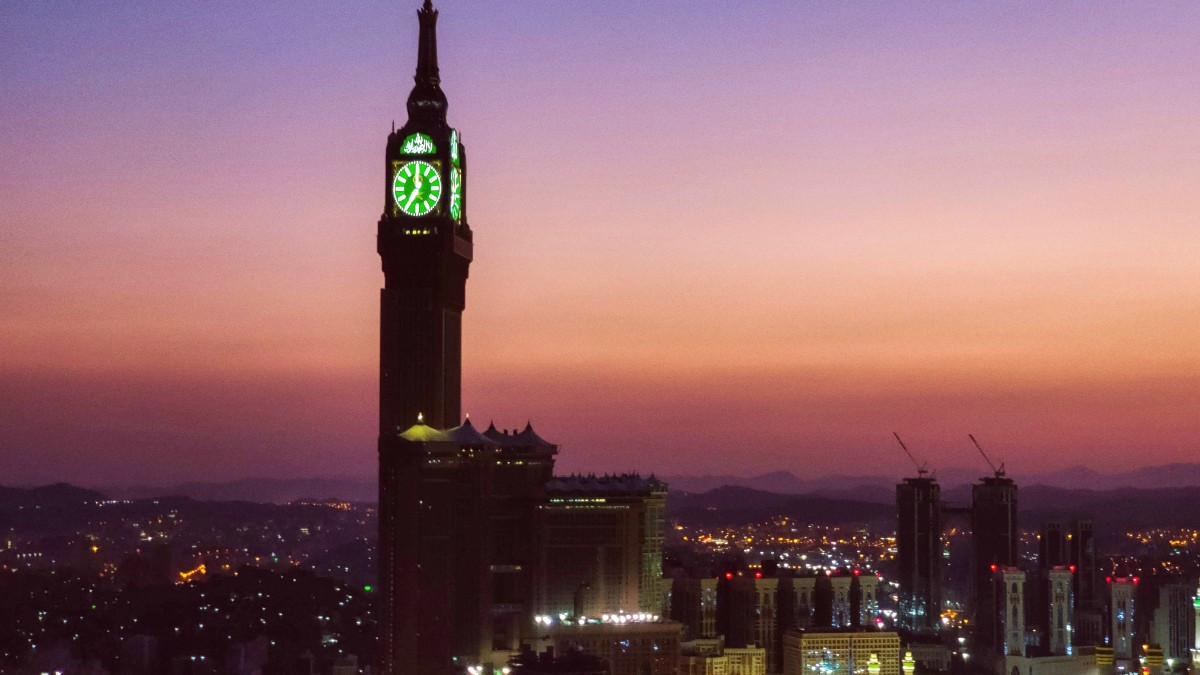
Saudi Arabia
Mecca's climate is consistently hot, with minimal rainfall. Summer (June-August) brings extremely hot conditions. Average daily temperatures often exceed 40°C (104°F) and frequently reach 45°C (113°F) or higher. Humidity can be moderate, but the dry heat feels intense. Rainfall during this period is negligible.
Autumn (September-November): Temperatures remain high in September, around 38°C (100°F). They cool by November, reaching around 30°C (86°F). Winter (December-February): This period is mildest. Average daily temperatures range from 20-30°C (68-86°F). Spring (March-May): Temperatures rise steadily, from 30°C in March to 40°C by May.
The flow of pilgrims to Mecca varies significantly throughout the Islamic lunar calendar. This affects crowds, prices, and the overall atmosphere.
Hajj: Occurs during Dhul Hijjah. Millions of pilgrims gather. Ramadan: Another peak time for Umrah. Many choose this period for rewards.
Peak Season
Fulfilling religious obligation, unparalleled spiritual atmosphere.
Extreme crowds, highest prices, logistical challenges, intense heat.
Peak Umrah Time
Heightened spiritual ambiance, unique communal experience.
Very high prices, large crowds, limited daytime dining.
Winter Umrah
Mildest weather (Dec-Feb), fewer crowds.
Lower accommodation and flight costs. Easier movement.
Intense sun calls for constant hydration. Carry a Water bottle and refill frequently. Wear a Wide-brimmed hat or use an Umbrella. Lightweight, loose-fitting clothing manages heat.
Dust storms can occur, reducing visibility. If a dust storm occurs, remaining indoors is preferred, or use a face covering.
Dates are fixed by Islamic calendar.
Any time. Cooler months (Dec-Feb) make for comfort.
Ramadan and Hajj season if comfort is a priority.
December to February.
Travel health clinic advice before trip.
These rules are strict and call for careful attention to detail. Entry to Mecca is exclusively for Muslims.
Saudi Arabia offers distinct visa categories for pilgrims.
Gathering the correct documents before applying for your visa streamlines the process.
Visa fees vary by nationality. Immigration procedures involve passport control and biometric scanning upon arrival.
Pilgrims mainly arrive at King Abdulaziz International Airport (JED) in Jeddah or Prince Mohammad Bin Abdulaziz International Airport (MED) in Medina.
Prices fluctuate considerably based on season and travel style.
Tipping is not mandatory but appreciated for good service.
Mecca generally has a very safe environment. Prepare for common health considerations and the unique challenges of large crowds.
Mandatory for Hajj/Umrah visas.
May be required based on origin.
Hepatitis A & B, Typhoid, Flu are recommended.
Heat Exhaustion/Stroke: Intense heat poses a risk.
Stay hydrated, seek shade, wear light clothing, avoid strenuous activity during peak heat.
Respiratory Infections: Common due to crowds. Wear a Mask, wash hands frequently.
Foot Issues: Extensive walking causes discomfort. Comfortable shoes and Blister plasters.
Hospitals and clinics available. Free emergency services during Hajj.
Widely available and well-stocked with common medications.
Police: 999, Ambulance: 997, Civil Defense: 998.
Tap water generally not safe. Use bottled water exclusively.
Mecca maintains a very low crime rate.
Main safety concern during peak times. Navigating vast crowds.
Possible in extremely crowded areas. Keep valuables secure.
Flash floods rare, dust storms possible.